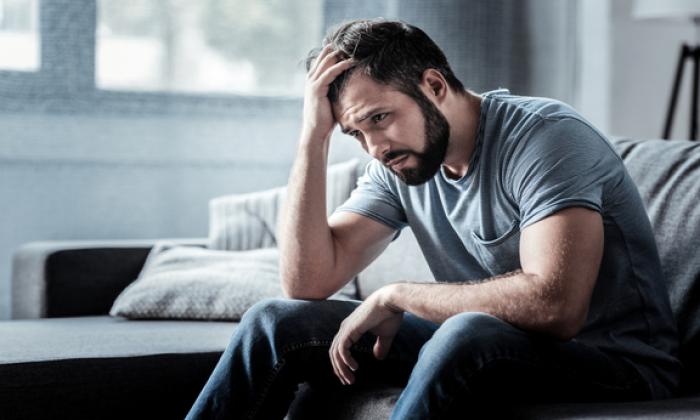
Depression is one of the most common mental illnesses in the world, affecting millions of people. In this article, we look at five things that we get wrong about depression, and offer ways to help people suffering from this debilitating illness.
It’s estimated that one in four people will suffer from depression at some point in their lives. For some, it’s a temporary state of mind, but for others, it’s a long-term condition that can last for years. Depression affects everyone differently, but it often leaves the sufferer feeling sad and hopeless. It can make you feel tired, unmotivated and unable to concentrate. You may also have trouble sleeping, and your appetite may decrease.
Depression is a brain disorder that can lead to changes in your mood and behaviour, but it’s not a sign of weakness. People with depression often feel overwhelmed by thoughts about themselves or the world around them.
There are many misconceptions surrounding depression, and if you’re one of the millions of people affected by it, you might have been led to believe some of these incorrect ideas. From “depression is a chemical imbalance” to “people with depression doesn’t care about others,” here are five things that we get wrong about depression, and how to help those struggling with it.
1. You need to take medication
Depression is a serious medical condition and you need to consult your doctor. Medicines are also a solution but you should consult a doctor before taking any medicine. You can also try the home remedies and natural methods to get rid of the depression.
2. It's not a normal part of life
There's no doubt that the loss of a loved one is traumatic. There's also no doubt that the loss of a loved one can trigger a depressive episode. The trouble is that some people who suffer from depression are often misdiagnosed, or even don't receive a diagnosis at all.
3. It's all in your head
Depression is also sometimes confused with other psychological conditions such as anxiety, bipolar disorder, post-traumatic stress disorder, and obsessive compulsive disorder. For example, someone with a chronic health condition such as heart disease or diabetes might feel depressed. And a person who suffers from severe trauma or abuse might also feel depressed.
4. There's no cure
While there are some medications that can treat depression, many people find that the best treatments involve therapy and self-care.
5. It's always going to be with you
When a person suffers from depression, he or she still needs to do all the things that help people feel better. The difference is that when a person suffers from depression, he or she might not be able to feel happy, or at least not very happy. So if a person is depressed, he or she has to focus on the positive, make friends, exercise, and seek professional help from a mental health specialist in Bhopal.
Here are some of the common symptoms of depression:
- Feeling sad, low or empty
- Having little interest in activities you used to enjoy
- Losing your sense of humor
- Trouble sleeping
- Feeling tired or worn out
- Difficulty concentrating
- Being angry or aggressive towards yourself or others
- Not being able to control your temper
- Withdrawing from friends and family
- Having suicidal thoughts
Symptoms of depression may vary depending on the person, and some people may experience none of the symptoms listed here.
When to seek help
If you or someone you know is experiencing any of the symptoms listed above, it’s important to seek help.
Even if the symptoms of depression are mild, it’s still an illness. If you’re experiencing any of the symptoms listed above, it’s important to speak to a doctor.
- Latest Posts
- Best Psychiatrist in Hoshangabad – Dr. Sanjeet Diwan
- Best Psychiatrist in Itarsi –Dr. Sanjeet Diwan
- Best Psychiatrist in Mandideep – Dr. Sanjeet Diwan
- Best Psychiatrist in Obaidullaganj - Dr. Sanjeet Diwan
- Best Psychiatrist in Sehore – Dr. Sanjeet Diwan
- Link between Physical Exercise & Mental Health: An Insight from a Psychiatrist in Bhopal
- The Importance of Self-Care for Mental Health: An Insight from a Psychiatrist in Bhopal
- Addressing the Stigma Surrounding Mental Illness in Bhopal
- Choosing the Right Psychiatrist in Bhopal: A Guide for Patients
- Self Care for Mental Health: Tips and Techniques for Prioritizing Your Well-Being
- Top 6 Tips to Get Rid Of Drug Addiction
- How to Talk to Kids about Anxiety?
- How Can I Best Help My Child Manage His ADHD?
- How to Prevent Suicide in Your Teenage Child?
- How Exercise Affects Our Minds?
- 5 Damaging Myths about Personality Disorders
- What are Body-Focused Repetitive Behaviors?
- Top 8 Effective Ways to Overcome Body Image Issues
- 7 Behaviors That Might Point to Childhood Emotional Neglect
- How to Help Students Who Are Suffering from Mental Health Issues?
